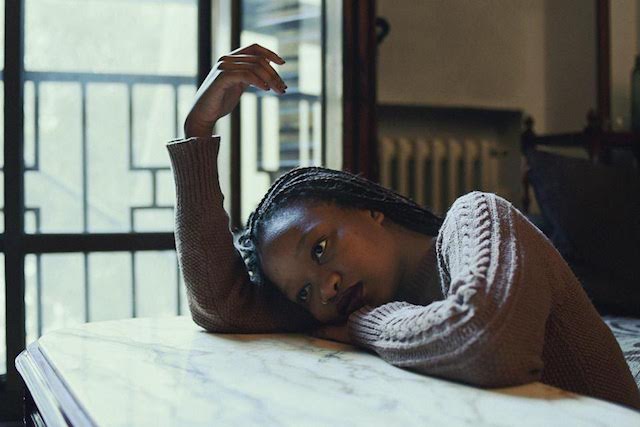
When I was growing up, like most teenagers, I had a lot to say about the way my parents were raising me.
I was a rebellious teen who didn’t know what gratitude was and gave very little objectivity to understanding my parents’ ways. I thought I knew it all of course.
At age 13, I started composing a list into a little grey notebook I named “Things I want my kids to know when they grow up.” It was to be a notebook I’d fill with my experiences and mistakes (including the ones that could have been avoided).
I focused on writing more than anything—with the idea that perhaps sharing some things that I’d lived would fill in the blanks of someone else’s questions out there.
Here are five of the heaviest realizations:
Our bodies will betray us.
It was while we were waking up, sipping our coffees, walking to our metros, talking to our friends, texting our lovers, and carrying out normal life—that the inevitable was already developing beneath our skins, our own genetic code already determining how we would die.
One day as doctors read our test results, we’ll be clutching our hands to our chairs wishing all of it was a mistake, and will realize that our own bodies have already decided on a plan to sabotage us, with ultimately nothing we could have ever have done to reverse our own evident mortality.
Some diseases even slip through the barricades of every single healthy precaution we take and like a well-placed insult, make their way through.
Sometimes we’ll spend years fostering and making happy memories, only to one day experience them wandering into the archives of our minds. Names, places, faces—all of it lost in a body and mind that grows old.
Little by little, we discover body malfunctions we’ve never heard of—the doctors’ visit ending with a prescription in one hand and a life altering question in the other: why me?
And while doctors always find new names for these deteriorations of the body, we realize more by the day how powerless we become in front of what we ultimately have no say about.
We put names to the things that kill us, but rarely stop to consider giving names to the things that make us feel alive.
Maybe then if we had spent more time pondering those, we’d have felt we were living a life with no regrets, rather than a life with remorse.

Parenting our parents.
For me, my dad embodied a superhero and the genius of a scientist. He always had the answers to every one of my cosmic questions:
“Dad, if a volcano erupted in Italy like in the movie, could it touch our house?”
“Dad, how come stars look so small while my books keep describing them as big?”
And my mom had always personified an opinionated person that knew what was best for us:
“No, you won’t be going on the school field trip to the pool like all the other kids—you’ll go to the museum instead. You’ll thank me when you’re older.”
“No, you won’t be attending religion or ethics class, I don’t need my kids to be brainwashed with other people’s morals.”
I used to think they were like savants—retaining the responses to everything. Even though as I grew older I felt they sometimes came from another planet than mine, they probably felt the same.
I recognized some years ago however, that my parents were perhaps not always right about everything, and they had their own opinions, wrong or right, just like me.
They may have been lost on a bunch of things, but tried their best to raise me. They made mistakes, but they also made enormous efforts. They screamed at me, but probably also cried because of me.
It is a harsh awakening while we age, to slowly sympathize with the idea that our parents are no longer the superheroes we grew up with, no longer those people with the answers to everything.
Someday we will also realize that the “adults” we used to turn to are still doing their share of growing up.

Learning when to cry.
I used to go to the school nurse a lot when I was younger. Be it for a scratch or what I always believed to be a broken leg or arm (and always turned out to be “nothing much but a bruise” to my own disappointment.) I’d mope around in class when things weren’t going well in the hope that someone would ask me what was wrong. I’d leave my room in a mess for weeks (if not months) when I didn’t feel like I was up for life.
But as an adult I realized that those days for attention and sulking over sadness were long gone.
As an adult, the trash needs to be taken outside, the meeting we fixed at 14 o’clock needs to be held, the kids need to be picked up from school, and the friends that come to visit us need to be attended to, even if we don’t feel like showing our face to the world that day. Friends and family won’t always know when to ask us what’s wrong.
The more we grow, the more we make ourselves indispensable, including to our responsibilities.
So, we learn to keep it in and to let it go later—that is of course, if we ever do let it go. The time to let it out never suits us. In the meantime, we keep our heads up high, telling ourselves we’ll cry later, talk later, tackle that thing that’s been bothering us later, until finally that later turns into a never.
As we grow up, rarely seeing our own parents cry, we are misguided in the idea that adulthood is solely about bravery. About all the amount of times we can “make it through.” About hiding feelings from those who could abuse them. But who said crying was a synonym to failure or weakness?
As we are raised to cry later—there will come a time when we won’t realize how far we’ve boxed up those emotions until we, or the people closest to us pay the price.
Our society is filled with fear. Fear of breaking and shattering. Fear of failing and public shaming. But always fears sparked by dreading another person’s judgement—that they might see beyond our layers that we try so hard to hide behind.
Few consider that it’s the same vulnerability that makes us stronger. If we have the courage to acknowledge our vulnerabilities, what makes us scared, and what keeps us awake at night, we ultimately leave nothing for our imaginary foes to reveal to light. At least, nothing that hasn’t already been shown. And we leave our real friends with the gift that we trust them enough to see these parts of us.

By the time we’re 25, we’ll have lost three-quarters of our friends.
There are those we’ve had since they saw us pick our nose. Those we’ve had our first cigarettes with, those we’ve gone to concerts with, those we’ve cried with, those we’ve gone on trips with, or even those who’ve known our parents.
They are the friends who have seen us go through the different stages of our lives. And while we live moments with them that seem endless—they do someday end. Even though there are those friends we’ll never lose a bond with, even in 10 years, we’ll lose some along the way.
Though the connection was strong, we’re sometimes more tied to the context we lived in than anything else.
Some people will come in and out of our lives, and every hello could be the next potential goodbye. But at least when we are saying hello, let it be the best and most welcoming hello of all. No matter where the person comes from. No matter if the encounter lasts a minute, a night, a period or a lifetime.

Sometimes we learn best in retrospect.
“I should have known…”
A daunting sentence we will say to ourselves at least once, if not multiple times in our lives, as we learn. Things become so clear that we somehow feel stupid for not having seen them before.
“I should have known I couldn’t trust her…”
“I should have known that was going to come bite me in the ass…”
“I should have known not to risk it…”
“I should have known this was a bad idea…”
Instead, we lie awake at night with regret and frustration over things we perceive that we could have done better, things we can’t accept—endlessly thinking that we should have known better.
But what would a life lesson be without at least a speck of regret or an ounce of discomfort? Some lessons can only ease into our minds like tattoos on our skin: painful in the beginning, but with eternal meaning.
In the end, it isn’t about the amount of self-help books we leaf through, the coming-of-age films we watch, or even the articles we read. Life holds many unpredictable lessons, and that is the joy of this adventure.

All quotes are real and collected by the author for her project Last Words for the Road.
~
Author: Lauren Klarfeld
Images: Main Image: @chiaramaggiore_ph//Instagram (with permission)
Additional Images: Author’s Own – Last Words for the Road.
Editor: Jen Schwartz
Copy Editor: Travis May










Read 0 comments and reply